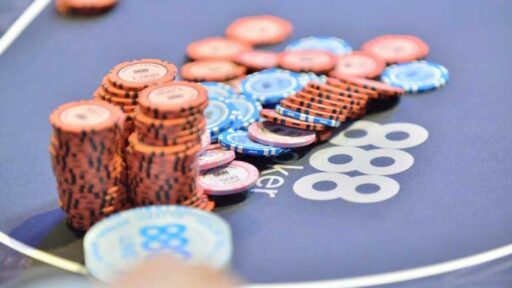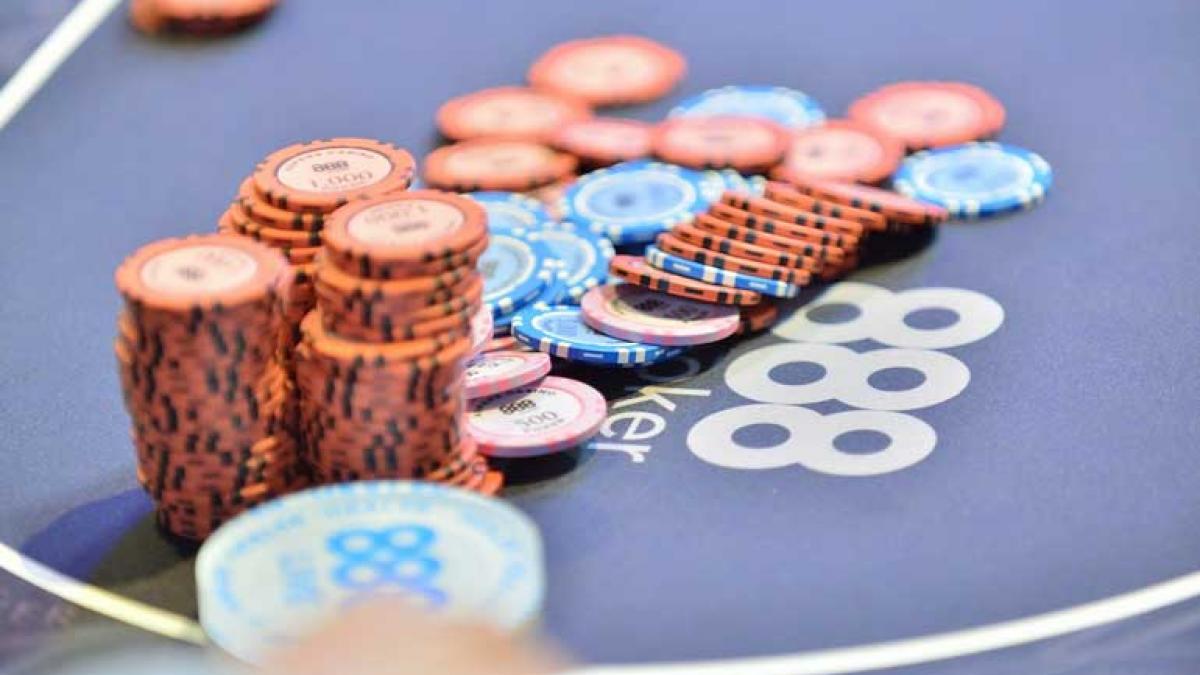Many people believe that it is impossible to win at online poker. Some complain about tampering, others say that the rake eats up all the profit. Still others blame the “army of regulars” who leave no chance. As a result, there is a feeling that only bots and mathematicians sit at the tables, and the ordinary player has nothing to do in a poker room.
But these are myths. Yes, there is variance in poker – you can be lucky for a week and then your bankroll goes down the drain. Yes, rake exists, but it can be compensated by rakeback. Yes, there are a lot of regulars, but there are also plenty of weak players, especially at low limits. The main thing is not to confuse short distance with long term play.
If you look at a single session, poker is pure lottery. The cards are dealt randomly, and everyone gets a draw. But over the long haul, it’s all about understanding theory, discipline and bankroll management. PokerListings provides plenty of examples of how successful players have built strategies and achieved a stable profit.
Key Factors That Impact Your Online Poker Profits

Long-term profitability depends on many factors, from the rake structure to the choice of games. Even a good player is at a disadvantage if he ignores important nuances.
Three aspects can be distinguished that determine the win rate:
- Rake and its impact on the bottom line;
- Finding favorable games with lots of weak opponents;
- A balance between the number of tables and the quality of the solutions.
Without taking these factors into account, a strong play does not guarantee profit.
The Role of Rake – How Much Are You Really Losing?
Rake is the commission a poker room takes from each pot. The higher the limits, the more money goes to the operator. The average rake is 3-5%, but at low limits it can be as high as 10%.
Examples of rake on popular sites:
Poker room | Rake cash game | Rake tournaments | Rakeback / bonuses |
|---|---|---|---|
PokerStars | 4.5-5% (cap to $3) | 8-10% | up to 60% |
GG Poker | 5% (cap depends on the limit) | 7-10% | 30-50% |
888poker | up to 6% (cap to $2) | 10% | 20-40% |
PartyPoker | 5% (cap $3) | 7-9% | up to 40% |
Unibet Poker | up to 5% | 6-8% | 10-30% |
To compensate for losses, professionals use rakeback and bonus programs. Partial refund of the commission reduces the load on the bankroll. For example, with a rakeback of 30%, a player returns hundreds of dollars a month, which has a positive effect on EV.
Game Selection – The Most Overlooked Strategy
Many people think that success in poker depends only on the level of play. But if you find yourself at a table with regulars, even the perfect strategy won’t help. There’s more to table selection than meets the eye.
Look for soft games with a lot of weak players (fish vs. regs). You can recognize them by these characteristics:
- Players enter the giveaway too often;
- Big banks with no showdowns;
- High percentage of folds to a 3-bet.
At low limits there are more weak opponents, but the rake is higher. At medium limits there are fewer “fish”, but EV is higher due to lower commissions.
Multi-Tabling vs. Focused Play – What’s Better for Profits?
One table means more concentration, and several tables means higher game volume. Multi-tabling allows you to earn more, but reduces the quality of solutions.
The pros of playing at multiple tables:
- Increase win rate due to volume;
- Less time waiting for giveaways;
- More chances to realize a mathematical advantage.
But this mode of play has its disadvantages – it is more difficult to track the style of play of opponents, which increases the risk of mistakes due to lack of time to analyze the hand.
Annoyed by rapid fatigue and loss of concentration? There is a solution – HUD (Heads-Up Display). It collects statistics on your opponents: their aggression, folds to counterbets, frequency of 3-bets. This helps you to make faster decisions and compensate for the disadvantages of multitabling.
The Evolution of Online Poker – Has the Game Gotten Tougher?
It used to be possible to play taito-aggressive and make money. But poker has changed: GTO (Game Theory Optimal), solvers, training courses have appeared. The average level of players has increased by 15-20%. But that doesn’t mean you can’t win anymore.
Modern regulars are less and less exploitable thanks to mastering GTOs. Recreational players are also improving their skills, and there are still many of them in popular poker rooms. The latter try to limit the use of HUDs, which makes it more difficult to collect and analyze statistics.
In such conditions, bankroll management and understanding of variance come to the fore. Short-term results have become less predictable, but over the long haul the quality of play still matters.
Strategies to Stay Profitable in Today’s Online Poker Environment

Modern poker requires more than strategy knowledge. Competition has intensified, the fields have become tougher, and mistakes are more costly. To stay ahead, you need to adapt to your opponents’ play, use poker software and work on your mental toughness. Those who improve their skills, analyze hands and make informed decisions over the course of the game win.
Adjusting to Tougher Games – The Importance of Adaptability
The poker environment is constantly changing. Regulators are learning GTOs, weak players are becoming more aware, and rooms are making it harder to access statistics. In such an environment, you can’t play by the book, you have to adapt to the changing conditions.
Effective styles of play today:
- Exploit against weak opponents. Amateurs make the same mistakes – playing too loose, overestimating hands, not protecting blinds. If you don’t take advantage of these moments, your distance will suffer.
- Balance against strong regs. Predictable play at high limits is not forgiven. Regulars playing GTO leave no loopholes for exploits, but they still have weaknesses. For example, many follow the theory without taking into account the specific trends of the field.
- Aggression and pressure. Modern poker rewards those who dictate terms. Just look at the best players: they rarely pass and force their opponents to make difficult decisions.
Adaptability is more important than strategy. It is important to understand when to exploit the field and when to play more cautiously.
Using Poker Software and Data Analysis
Without quality analysis of the game it is impossible to develop. Modern poker is not only about math, but also about working with data. Using poker software gives a huge advantage:
- PokerTracker and Hold’em Manager – collect hand statistics, show real-time HUD and help you find weaknesses in your game;
- GTO-solvers (PioSolver, Simple Postflop) – help in studying strategies, modeling hands and finding errors in decisions;
- Hand2Note is one of the best trackers that works in rooms with restrictions against HUD.
How does it help? By analyzing the hand bases, players find weaknesses and correct the countenances. HUD shows the tendencies of opponents: frequency of 3-bets, folds to counter-bets, aggression on different streets.
The Psychological Game – Why Mindset Matters
Many people focus on the technical side of poker and forget about psychology. The ability to control emotions and maintain discipline is just as important as knowledge of theory:
- Managing emotions. After a series of bad beats, it’s easy to lose your temper, which can lead to impulsive decisions. The best players keep their cool even in the worst situations.
- Working with tilt. Everyone has lost bankroll because of rash decisions in a state of irritation. The only way to defeat tilt is to learn to recognize it and pause when emotions overshadow logic.
- Discipline and motivation. To be a profitable player, you need to work on your game. It is important to analyze hands played, watch tutorials and work on your strategy.
Poker is a game of skill, but only those who can control themselves stay on the plus side over the long haul. Platforms like Sloto Cash Casino often remind players that strategy and discipline are what separate long-term winners from casual players.
Is Online Poker Still Worth Playing for Profit?

The easy times are over – the regulars have gotten smarter, the rooms have tightened the rules, and the solvers are raising the standard of play. But if poker were to finally “die”, the pros would be left with nothing. The question is not whether you can win, but who wins.
The money is still in play, but now it’s not enough to know the strategy, you have to adapt. The ones who win are the ones who:
- Finding weak tables rather than fighting GTOs;
- Parses giveaways, tracks bugs, and looks for exploits;
- Observes bankroll management and does not go into tilt after a downstroke.
The main thing is to understand what exactly brings money: analysis, discipline, and the right choice of games. Those who are willing to invest in themselves win steadily. The rest of us feed the regulars.
Common Questions About Online Poker Profitability
Can you still make a living playing online poker in 2025?
Yes, but the competition is tougher than ever. Game selection, bankroll management, and study habits are crucial to maintaining profitability.
What is the best way to reduce rake losses?
Look for sites with lower rake structures, take advantage of rakeback deals, and choose games with higher win rates to offset rake costs.
Are poker solvers necessary to win at online poker today?
While not essential for casual players, solvers and study tools can give you an edge, especially at higher stakes.
Should I focus on cash games or tournaments for better profits?
Cash games offer more stable income potential, while tournaments provide higher variance but bigger rewards for skilled players.
What’s the biggest mistake new online poker players make?
Playing too many tables too soon, ignoring game selection, and failing to adjust to modern strategies are common pitfalls.


